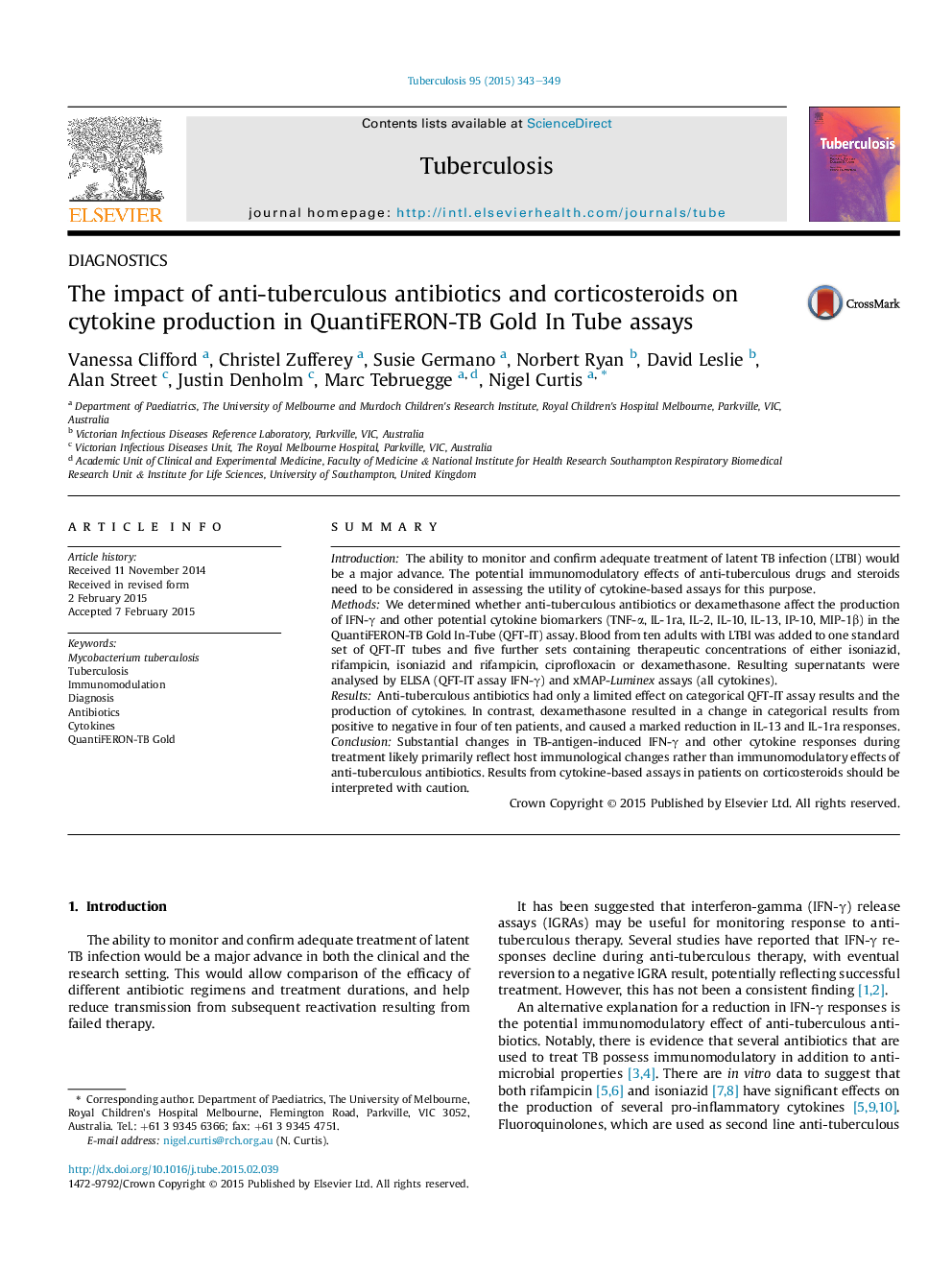| کد مقاله | کد نشریه | سال انتشار | مقاله انگلیسی | نسخه تمام متن |
|---|---|---|---|---|
| 2401398 | 1102333 | 2015 | 7 صفحه PDF | دانلود رایگان |

SummaryIntroductionThe ability to monitor and confirm adequate treatment of latent TB infection (LTBI) would be a major advance. The potential immunomodulatory effects of anti-tuberculous drugs and steroids need to be considered in assessing the utility of cytokine-based assays for this purpose.MethodsWe determined whether anti-tuberculous antibiotics or dexamethasone affect the production of IFN-γ and other potential cytokine biomarkers (TNF-α, IL-1ra, IL-2, IL-10, IL-13, IP-10, MIP-1β) in the QuantiFERON-TB Gold In-Tube (QFT-IT) assay. Blood from ten adults with LTBI was added to one standard set of QFT-IT tubes and five further sets containing therapeutic concentrations of either isoniazid, rifampicin, isoniazid and rifampicin, ciprofloxacin or dexamethasone. Resulting supernatants were analysed by ELISA (QFT-IT assay IFN-γ) and xMAP-Luminex assays (all cytokines).ResultsAnti-tuberculous antibiotics had only a limited effect on categorical QFT-IT assay results and the production of cytokines. In contrast, dexamethasone resulted in a change in categorical results from positive to negative in four of ten patients, and caused a marked reduction in IL-13 and IL-1ra responses.ConclusionSubstantial changes in TB-antigen-induced IFN-γ and other cytokine responses during treatment likely primarily reflect host immunological changes rather than immunomodulatory effects of anti-tuberculous antibiotics. Results from cytokine-based assays in patients on corticosteroids should be interpreted with caution.
Journal: Tuberculosis - Volume 95, Issue 3, May 2015, Pages 343–349